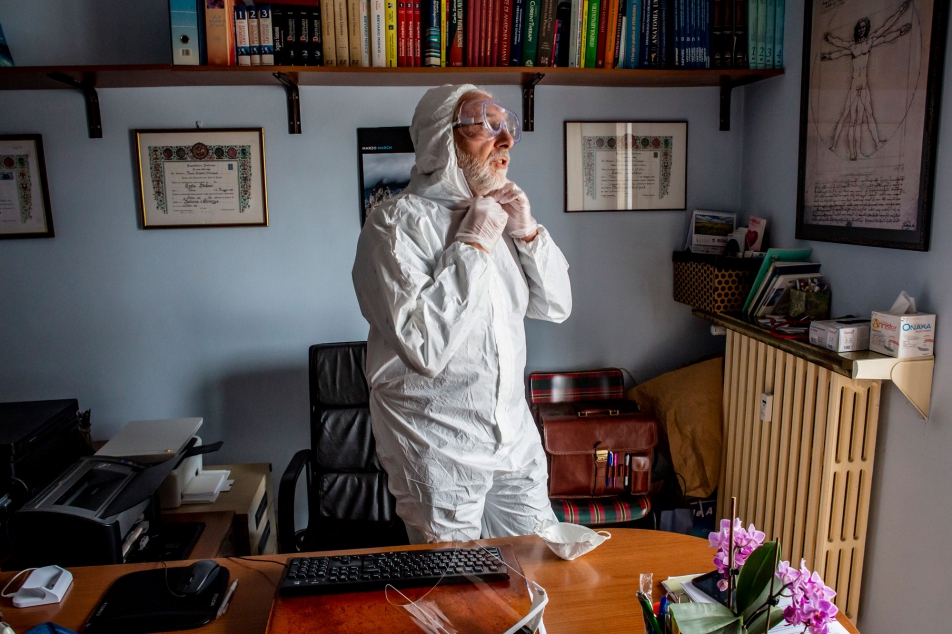WORK
Separated by the pandemic, united by work
by Pierangelo Sapegno

I don't know whether Covid has made us a world that Charles Bukowski would have liked. He said that he loved “the loners, the different ones, the ones you never meet. Those lost, gone, spirited, fucked up. Those with the soul on fire.” I'm not sure if we were all these things. We were just losers.
On that day we stuck our noses outside once again and restaurants started reopening, there was a video on YouTube or Facebook that struck a chord with me more than any other, it was of Fabio Picchi, the man from the Cibrèo restaurant and the Teatro del Sale in Florence, the imaginative chef who believes in speaking through food. He burst into tears as he announced that some of his employees could return to work: "Sorry, I'm a bit emotional…” he said, as he sobbed.
And then, all of a sudden, it occurred to us that many wonderful things had been said about work, telling us how great smart working is - ennobled by an inappropriate adjective, "intelligent, agile", while "remote" might be more accurate - and how our future may become digital and solitary, effortlessly and naturally hastened by Covid, and that all this may even be true. Yet, I'm still left with the feeling that real work is actually this, the collective emotion of Fabio Picchi, or the nurse Elena Pagliarini collapsing onto her computer, her exhausted face becoming immortalised in Covid history. Work is all those deep-sea diving suits fighting as if engaged in a war, and doing so to save our lives, those we call shopkeepers who kept their premises open, the supermarket assistants who never caved in, the carabinieri officers who delivered shopping and pensions to the homes of those who couldn't go outside.
Because work is a community like those belonging to churches, it's a religion, it's the Calvinism which rewards the best, it's the past from which we come and which arrived all the way here with its legacy of bygone times. It's the society that typifies this part of the world, a bourgeois society that fled on the pilgrim ship and then came back to save us. This is why work is Fabio Picchi crying and the nurse Elena Pagliarini collapsing onto her computer. Because it's a part of our life that we strenuously defend.
That's why we are losers. We don't have our souls on fire like those destitute individuals that Bukowski loved so much, but we're stuck here, in no man's land, like those fixed gazes staring out from windows during the days of lockdown, twigs at the mercy of a storm that's yet to strike and we don't know when it will. And yet it’s there, right before our eyes, with black clouds sending thunder and lightning over the horizon. The creator of Father Brown, G.K. Chesterton said, "the worst of work nowadays is what happens to people when they cease to work". Perhaps it seems a little too much, but those were other times. Today, in Italy, people have even gone on strike to defend their right to health and safety, putting that ahead of their job. And they are closer to reality than Chesterton.
We are moving towards a different society, one in which there will be far less work than there is today. Yet Fabio's tears contained a sense of what we had been, what we were before an unknown virus came along to send us running into our homes, to hold us prisoners of fear. The community of work, that's what we were. There was plenty of sibling rivalry and slippery relatives, for sure. But we used to watch the world together. That's how we helped each other. And we never even noticed.
(© Pierangelo Sapegno/La Stampa, July 21, 2020)
(In this photo by Sergio Ramazzotti: local GP Stefano Costa puts on his PPE in his surgery in Settimo Torinese, before seeing his patients.)